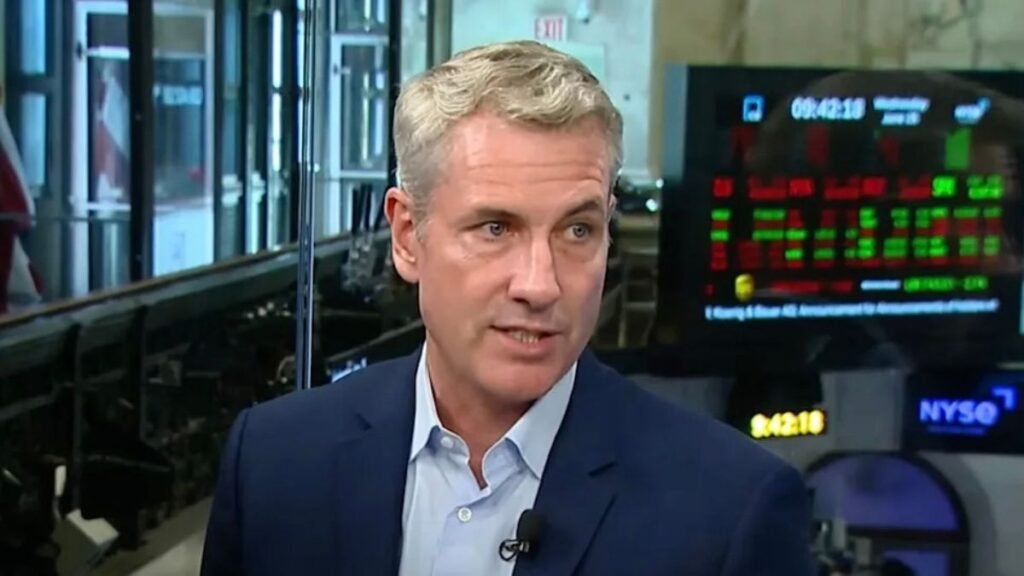Since the company’s price surpassed the billion-dollar mark in May 2025, there has been a lot of conjecture over the financial situation of Andy Byron, the former CEO of Astronomer. During its Series D fundraising, Astronomer, which is well-known for its Astro platform, which orchestrates data pipelines with remarkable efficiency, was valued between $1.2 and $1.3 billion. Venture analysts calculated Byron’s net worth to be between $20 million and $70 million using the traditional calculation of CEO equity, which is normally between 1% and 5%. Although the range may seem wide, it effectively illustrates how private firm stock converts into individual wealth.

Conversations about his fortune have recently been entwined with cultural interest, especially after Byron and Kristin Cabot, the chief people officer of Astronomer, unexpectedly came to the attention of the public due to a viral Kiss Cam incident at a Coldplay concert. Chris Martin’s spontaneous comments heightened the occasion, propelling a relatively unknown executive into the limelight often occupied by pop artists or celebrity business owners. This abrupt public scrutiny has blurred the distinction between personal reputation and professional worth, highlighting the fact that visibility, not income, defines influence in today’s networked media landscape.
CEO of Astronomer – Profile and Financial Overview
| Category | Details |
|---|---|
| Name | Andy Byron (Former CEO of Astronomer) |
| Company | Astronomer (Astro Data Platform powered by Apache Airflow) |
| Estimated Net Worth | $20 million – $70 million (Economic Times estimate) |
| Company Valuation | $1.2 – $1.3 billion after Series D funding (May 2025) |
| Major Funding Round | $93 million led by Bain Ventures, Salesforce Ventures and others |
| Equity Estimate | Between 1% – 5% (approx. $12M – $65M in potential ownership) |
| Known Associations | Kristin Cabot (Chief People Officer), Chris Martin (Coldplay reference) |
| Personal Life | Married to Megan Kerrigan Byron |
| Reference |
The billion-dollar value of Astronomer helped solidify its position as a late-stage unicorn. With Salesforce Ventures, Bain Ventures, and other significant investors driving expansion, the company has emerged as a surprisingly low-cost entry point for companies looking to update their data operations. The Astro platform has received accolades for being a highly adaptable solution that helps businesses increase dependability and streamline processes. Astronomer was able to establish itself as a market leader with an incredibly clear roadmap because to Byron’s leadership throughout this funding wave, which demonstrated the expanding convergence of technological innovation and financial expertise.
However, as is frequently the case in contemporary business culture, personal scandals and financial success go hand in hand. Companies are now held to greater standards of conduct, as demonstrated by the investigation that the Astronomer’s board undertook after the viral moment. In addition to generating profits, leaders are expected to exhibit ethics and accountability. Although the episode reminded stakeholders that leadership credibility can be as brittle as startup valuations, Astronomer had significantly expanded its reach through strategic alliances.
The way that Byron’s story reflects changes in the industry as a whole is what makes it so inventive. Like Snowflake’s quick valuation increase or Databricks prior to its multibillion dollar IPO, Astronomer is a member of a new wave of data-first businesses that are revolutionizing enterprise operations. These businesses create income by supporting the same mechanisms that enable contemporary commerce to operate, not by showcasing glitzy consumer branding. In this way, Byron’s estimated net worth of $20–70 million is remarkably comparable to the modest fortunes amassed by infrastructure leaders, whose names may not be well-known in the media but whose impact is felt across many industries.
The ramifications for society are similarly illuminating. Companies like Astronomer have revolutionized how businesses handle complexity by incorporating data orchestration into mainstream operations. This has freed up human talent and revolutionized industries by automating workflows. CEOs’ financial benefits from these endeavors represent more than just personal achievements; they are a reflection of broader technological trends that redefine productivity, efficiency, and trust. Although there is room for interpretation due to Byron’s public silence regarding his net worth and the viral concert moment, the facts are as follows: his financial situation is remarkably resilient, his company’s impact was much quicker than many had predicted, and the public has an insatiable appetite for tales that combine wealth, power, and personal drama.
Byron’s wealth might seem small in comparison to the Silicon Valley mega-billionaires. But context is important. His estimated net worth is the highest that may be attained by a well-timed equity holding in the enterprise software and data infrastructure specialty. Byron has positioned himself as a member of a select group of leaders whose personal wealth reflects the explosive growth of an industry rather than a single company by capitalizing on investor confidence and the worldwide trend toward data-driven decision-making.











